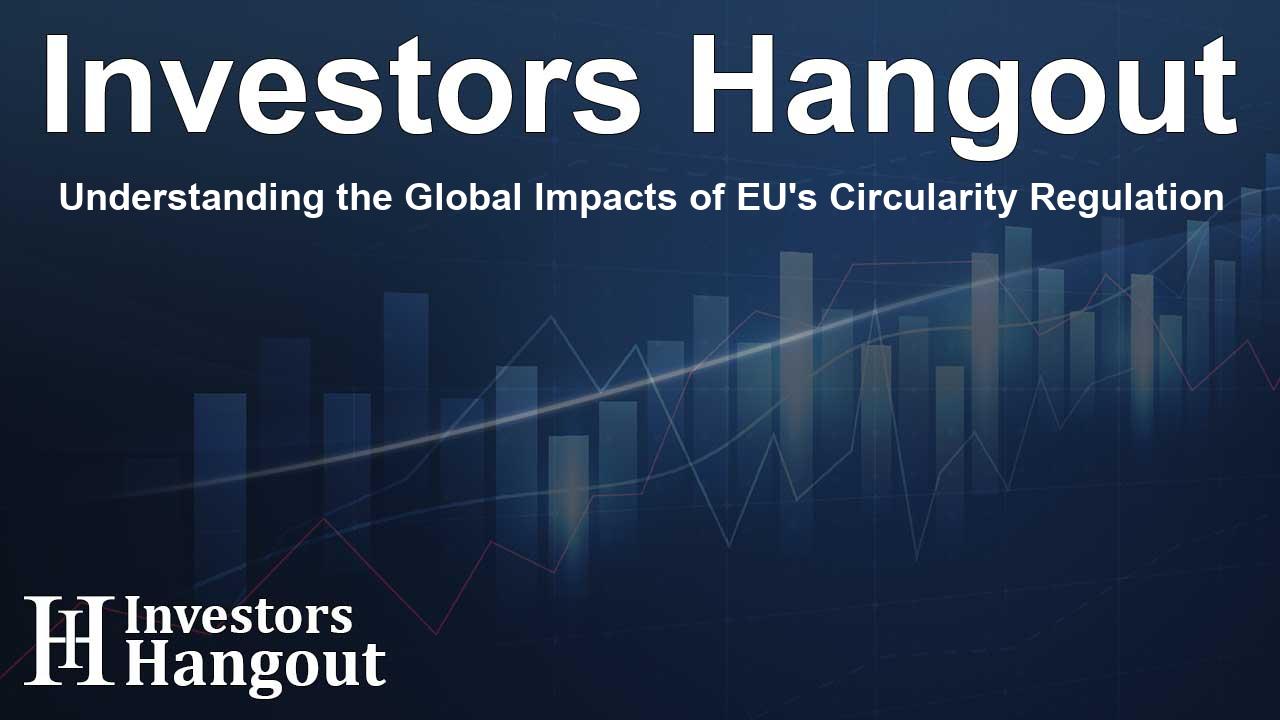Understanding the Global Impacts of EU's Circularity Regulation

Understanding the Global Impacts of EU's Circularity Regulation
LONDON and BEIJING – A recent study released by ICIS, a prominent source of commodity intelligence, and CPCIF, a leading organization for China's chemical and petroleum sectors, reveals vital insights into the European Union's circularity regulations and their growing influence on global recycled plastics demand. This research highlights the implications for many sectors, notably packaging, automotive, and textiles.
The research anticipates a significant increase in the need for recycled content, particularly in polyethylene (rPE), polypropylene (rPP), and polyethylene terephthalate (rPET), driven by new EU legislation and initiatives.
Key Findings from the Study
Several crucial revelations emerged from the study:
Substantial Demand Growth
By the year 2030, European producers are projected to require around 5.4 million tonnes per year of rPE, rPP, and rPET to meet the official minimum recycled content targets. As regulations evolve in the packaging, automotive, and textile sectors, this demand is anticipated to more than double to approximately 11.5 million tonnes per year by 2040.
The Role of Chemical Recycling
The report underscores the importance of chemical recycling in meeting the growing demands for recycled polyolefins in packaging. Given the limitations of mechanical recycling, especially concerning food safety and performance aspects, embracing chemical recycling methods is vital.
Global Supply Chain Implications
The interconnected global trade landscape indicates that EU regulations will significantly impact worldwide supply chains. Exporters wishing to enter the EU market must adhere to the new recycled content standards, influencing their sourcing strategies and increasing the demand for certified recycled materials internationally.
China's Key Role in Addressing Recycled Plastics Demand
China is projected to be a critical player in fulfilling the EU's recycled plastics requirements, with noteworthy contributions expected in the coming years.
China's Strategic Position
As a major trading partner with the EU, China is anticipated to supply more than 1 million tonnes per year of recycled plastics by 2040 to accommodate demands tied to export-bound finished goods. Although this amount represents a small fraction of China’s total plastics market, it signifies a substantial strategic influence, encouraging investments in research, development, and standards alignment.
Compliance Leads to Competitive Advantage
The study also highlights a transformative shift among Chinese exporters. They are moving from a reactive compliance approach to proactively positioning themselves in the market. Companies are investing in certified recycled and bio-based materials that align with new regulations, which can create a competitive edge.
Market Opportunities and Challenges
Although short-term costs related to redesigns, certification processes, and supplier adjustments are likely to increase, the study illustrates potential market opportunities for high-quality, EU-compliant recycled plastics. Firms can streamline compliance by standardizing packaging across different markets.
Driving Domestic Reform in China
The EU’s regulatory push is also acting as a catalyst for necessary reforms in China’s domestic recycling system, likely enhancing internal demand for quality recycled content and improving traceability within the supply chain.
Helen McGeough, Global Analyst Team Lead for Plastics Recycling at ICIS, stated that this study demonstrates that EU circularity regulations are evolving into a global market force that influences industrial strategies and supply chains worldwide. China's proactive response to these changes may be crucial for aligning domestic practices with international standards and propelling the global transition towards a circular economy.
As the regulatory landscape continues to evolve, both businesses and policymakers are encouraged to view compliance not merely as a burden but as an opportunity. This shift can drive innovation, secure access to markets, and establish leadership in the global circular economy.
Frequently Asked Questions
What is the focus of the ICIS and CPCIF study?
The study analyzes the impact of the European Union's circularity regulations on global recycled plastics demand, especially in key industries.
What is the projected demand for recycled plastics by 2040?
By 2040, EU producers are expected to need 11.5 million tonnes per year of recycled polyethylene, polypropylene, and PET.
How will chemical recycling influence the market?
Chemical recycling will be essential in meeting the demanded volumes of recycled polyolefins, overcoming limitations in traditional mechanical recycling methods.
What role does China play in the recycled plastics market?
China is expected to contribute over 1 million tonnes a year of recycled plastics to the EU by 2040, enhancing its strategic importance in the market.
How should businesses approach compliance with new regulations?
Companies are encouraged to view compliance as an opportunity for innovation and engagement in the circular economy while adapting to new standards.
About The Author
Contact Dylan Bailey privately here. Or send an email with ATTN: Dylan Bailey as the subject to contact@investorshangout.com.
About Investors Hangout
Investors Hangout is a leading online stock forum for financial discussion and learning, offering a wide range of free tools and resources. It draws in traders of all levels, who exchange market knowledge, investigate trading tactics, and keep an eye on industry developments in real time. Featuring financial articles, stock message boards, quotes, charts, company profiles, and live news updates. Through cooperative learning and a wealth of informational resources, it helps users from novices creating their first portfolios to experts honing their techniques. Join Investors Hangout today: https://investorshangout.com/
The content of this article is based on factual, publicly available information and does not represent legal, financial, or investment advice. Investors Hangout does not offer financial advice, and the author is not a licensed financial advisor. Consult a qualified advisor before making any financial or investment decisions based on this article. This article should not be considered advice to purchase, sell, or hold any securities or other investments. If any of the material provided here is inaccurate, please contact us for corrections.
